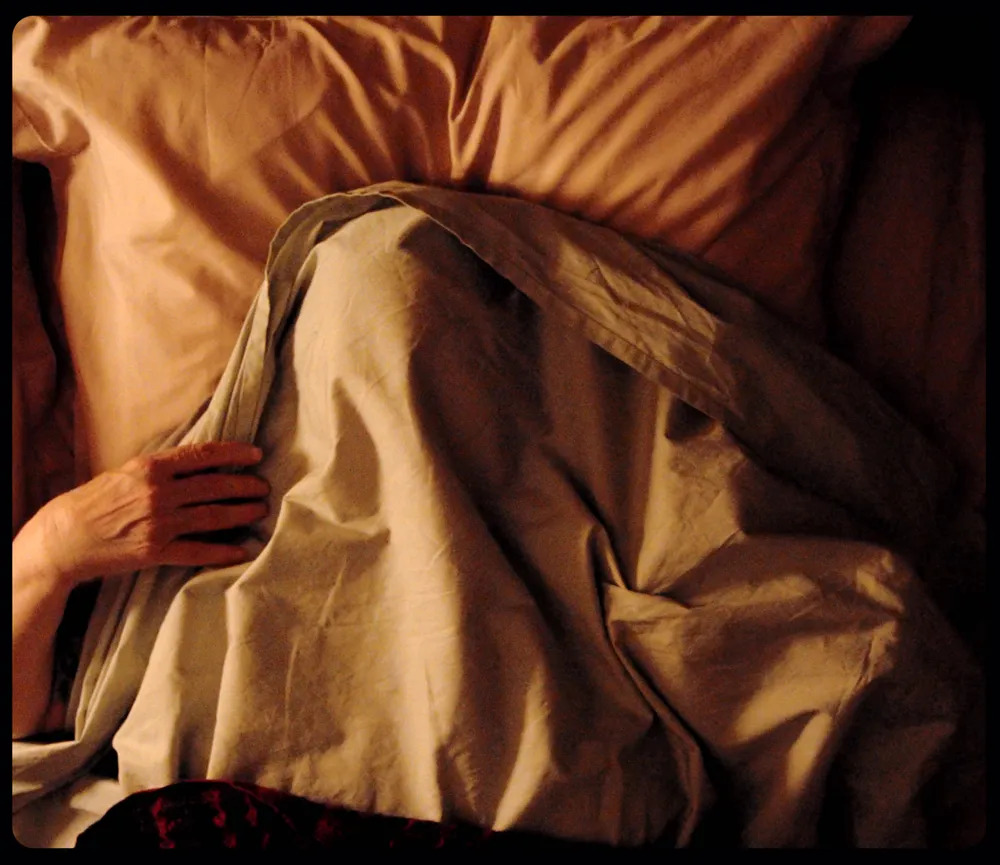
The exploration into how the condition and treatment of the physical body affects a person’s emotional and mental health has become a signature device in filmmaker Gaspar Noé’s projects throughout his career.
His latest drama, Vortex, continues that trend, in a relatable, heartfelt matter.
While Noé’s latest movie takes a drastic turn from some of his previous work, which was in part fueled by drugs and violence, Vortex ultimately proves to be one of his best efforts. The film explores how the matriarch’s diagnosis of dementia has impacted all of their lives, despite their initial inability to accept that fact.
Vortex follows an unnamed married couple, who are credited as The Mother and The Father (Françoise Lebrun and Dario Argento), as they struggle to survive their respective deteriorating health. She’s a retired therapist who’s unable to come to terms with the fact that she’s suffering from dementia. While she has occasional moments of lucidity, she’s becoming increasingly unaware of who even those closest to her are, as she doesn’t always recognize them.
The couple’s adult son (Alex Lutz), who’s struggling with his own health issues as he’s contending with substance abuse issues, is therefore left to care for his parents. With a young son of his own to care for, he becomes upset with his father, a film critic, for becoming more focused on working on his new book than being proactive in obtaining the proper treatment for his wife’s illness.
As The Son begs his parents to move into an assisted living complex so that they would receive the continuous professional care they both need, they resist the idea of leaving the home they’ve lived in for many years. As the trio contemplates the best way to move forward in their caring for their collective mental and physical health, they also emotionally reflect on their past decisions and experiences that led them to their present situation.
While Vortex is driven by a minimalist plot and dialogue that was largely improvised off of a 10-page concept created by Noé, the events in the feature still offer an emotionally poignant glimpse into the existence of a family that’s in denial of the seriousness of their current health conditions. That exploration is effortlessly brought to the screen by Lebrun, Argento and Lutz’s brilliant performances, which highlight their characters’ inability to contend with their respective mental and physical struggles.

Lebrun is the true standout star of the drama, as she plays her character with extraordinary subtlety, particularly when The Mother moves between moments of lucidity and confusion. The actress infuses her character, particularly when she has a rare moment of clarity, with a heartbreaking realization that she can no longer burden her husband and son with the responsibility of being her sole caregivers.
Noé further brought his sentimental, heartbreaking story to life through the visual language he created with the movie’s cinematographer, Benoît Debie, who presented two perspectives of the story simultaneously throughout the majority of the feature. After introducing The Mother and The Father in the establishing sequence, Vortex launches its effective split screen, which uniquely chronicles the couple’s dueling life views and perspectives.
The drama’s captivating visual style of following the characters in close proximity makes it feel as though it’s a day-in-the-life documentary that explores the struggle to contend with the difficulties of people’s declining health. Whether showcasing the characters from different angles in the same room or following their separate actions throughout the couple’s small apartment, the dueling frames allow the filmmakers to offer a powerful reflection on the unique perspectives the characters have on the same situation.
While Debies precise cinematography commands immediate attention for its emotional chronicling of the family’s unique perspectives, the work of Vortex’s production designer, Jean Rabasse, is just as tantalizing throughout the story. He crafted a cluttered, rundown apartment that feels equally sentimental and claustrophobic. The rooms are cramped with the items the family has accumulated over the years, which serves as both a powerfully visual backstory about their lives and representation that their current health situations are limiting their quality of life.
Vortex is a grounded, emotional and poignant exploration into the difficulties faced by a family that’s struggling to care for the matriarch as her health continues to decline in her older years. Lebrun plays the character with extraordinary subtlety as she makes the heartbreaking realization that she can no longer burden her husband and son with the responsibility of being her sole caregivers. With the aid of the movie’s stunning visuals, from Debie’s stellar split screen cinematography to Rabasse’s lived-in production design, the feature is a relatable, true-to-life chronicle about the struggles of care giving in modern society.

